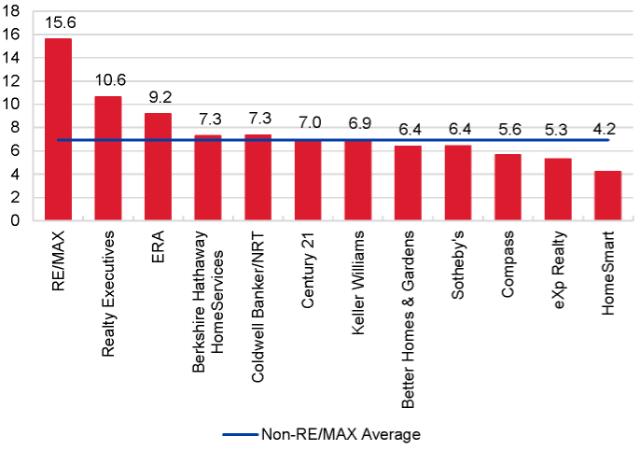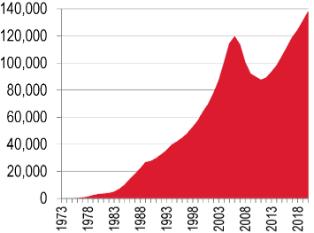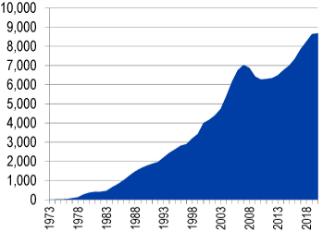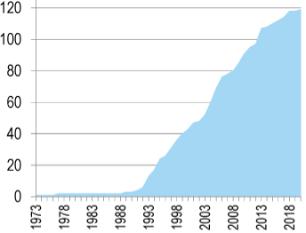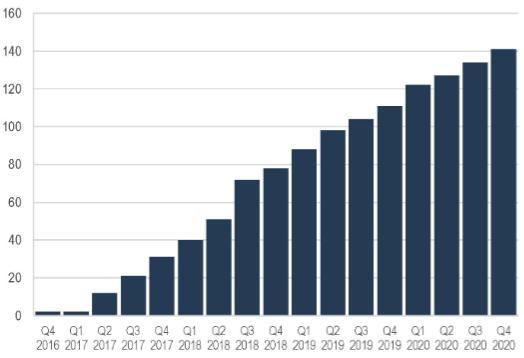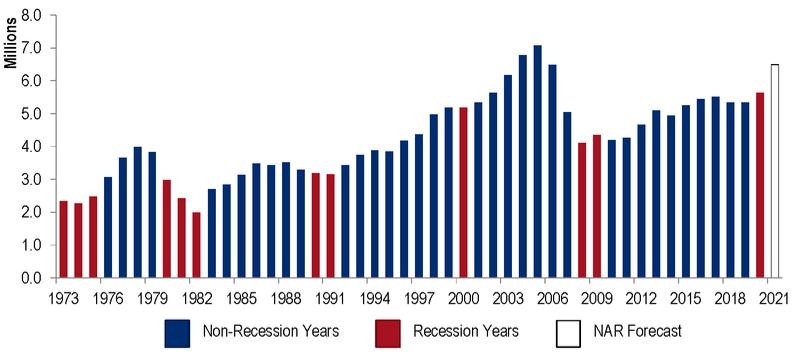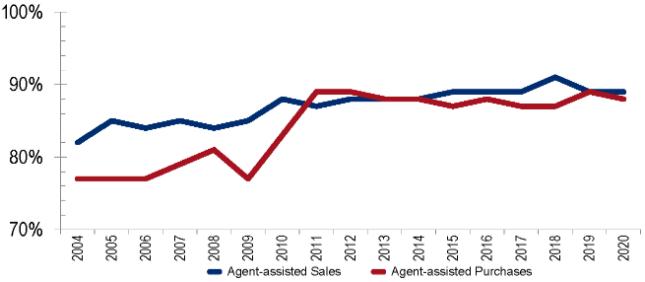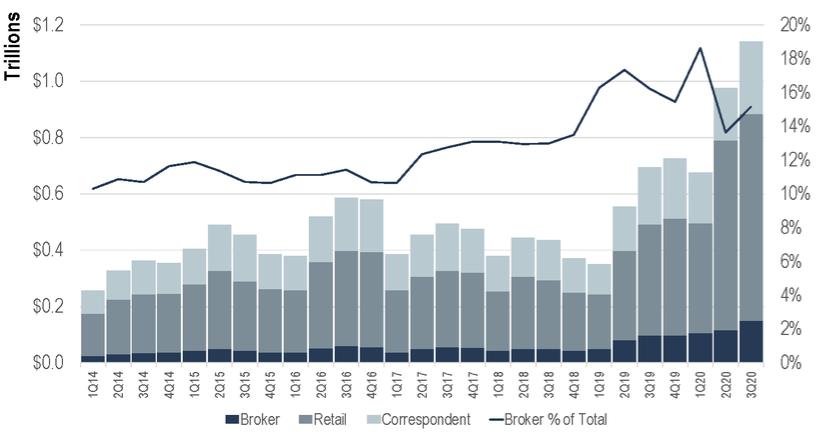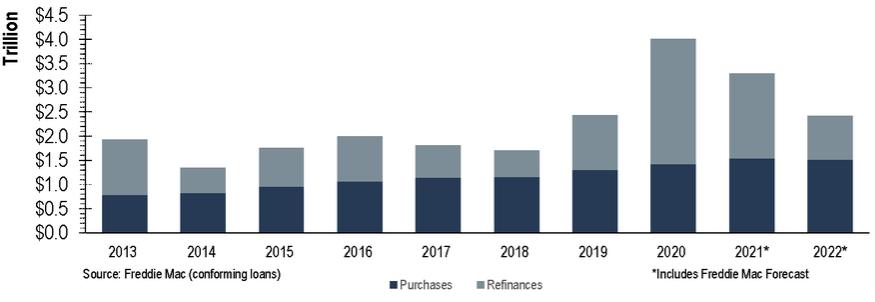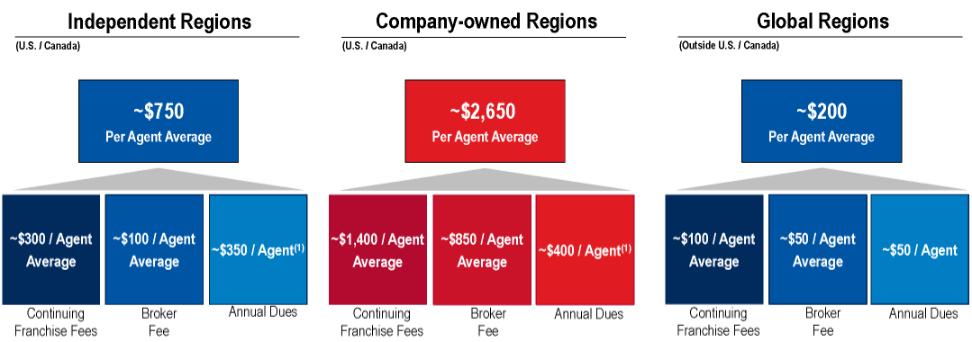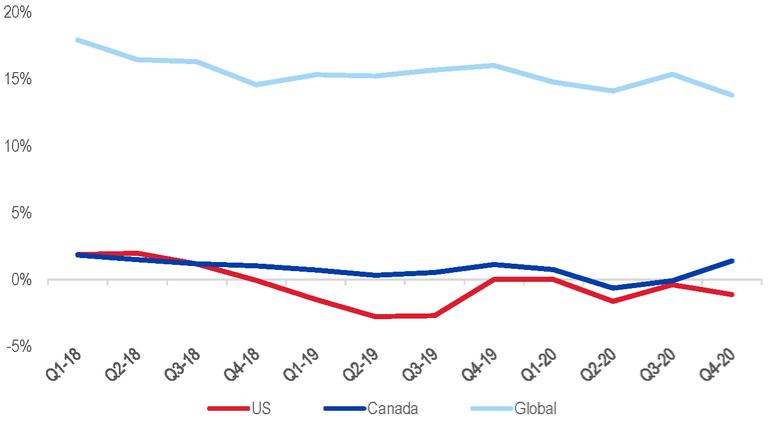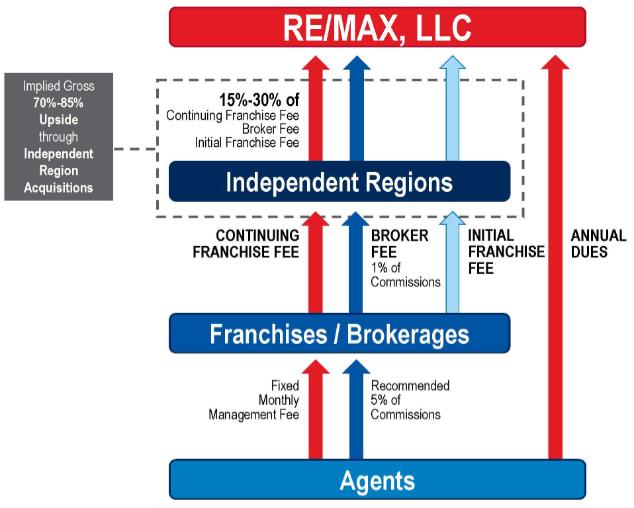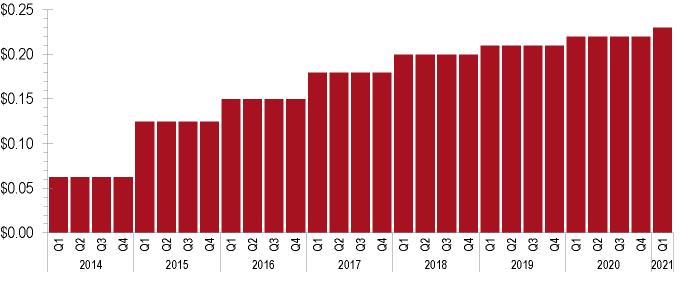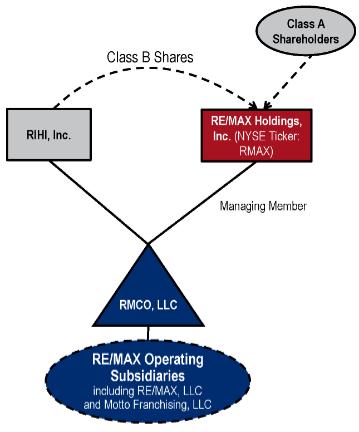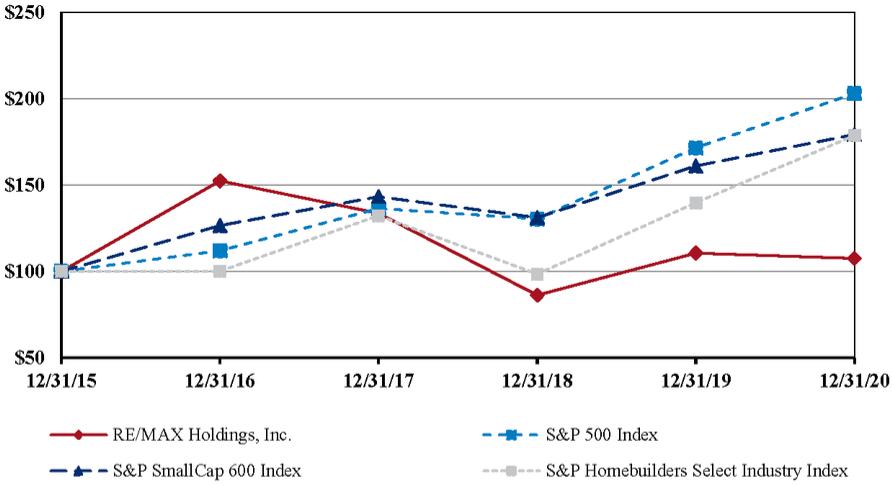Risks Related to Our Legal and Capital Structure
RIHI has substantial influence over us including over decisions that require the approval of stockholders, and its interest in our business may conflict with yours.
RIHI, a company controlled by David Liniger, our current Chairman and Co-Founder, and Gail Liniger, our Vice Chair and Co-Founder, respectively, owns all of our outstanding Class B common stock. Although RIHI no longer controls a majority of the voting power of RE/MAX Holdings’ common stock, RIHI remains a significant stockholder of the Company and through its ownership of the Class B common stock and holds 40.6% of the voting power of the Company’s stock. Mr. Liniger also personally owns Class A common stock with an additional 1.1% of the voting power of the Company’s stock. Therefore, RIHI has the ability to significantly influence all matters submitted to a vote of our stockholders.
In addition, RIHI’s entire economic interest in us is in the form of its direct interest in RMCO through the ownership of RMCO common units, the payments it may receive from us under its tax receivable agreement and the proceeds it may receive upon any redemption of its RMCO common units, including issuance of shares of our Class A common stock, upon any such redemption and any subsequent sale of such Class A common stock. As a result, RIHI’s interests may conflict with the interests of our Class A common stockholders. For example, RIHI may have a different tax position from us which could influence its decisions regarding certain transactions, especially in light of the existence of the tax receivable agreements, including whether and when we should terminate the tax receivable agreements and accelerate our obligations thereunder. In addition, RIHI could have an interest in the structuring of future transactions to take into consideration its tax or other considerations, even in situations where no similar considerations are relevant to us.
Our tax receivable agreements require us to make cash payments based upon future tax benefits to which we may become entitled. The amounts that we may be required to pay could be significant, may be accelerated in certain circumstances and could significantly exceed the actual tax benefits that we ultimately realize.
In connection with our IPO, we entered into tax receivable agreements that are currently held by RIHI and Parallaxes Rain Co-Investment, LLC (“Parallaxes” and together, the “TRA Parties”). The amount of the cash payments that we may be required to make under the tax receivable agreements could be significant and will depend, in part, upon facts and circumstances that are beyond our control.
The tax receivable agreements provide that if certain mergers, asset sales, other forms of business combination, or other changes of control were to occur, or that if, at any time, we elect an early termination of the tax receivable agreements, then our obligations, or our successor’s obligations, to make payments under the tax receivable agreements would be based on certain assumptions, including an assumption that we would have sufficient taxable income to fully utilize all potential future tax benefits that are subject to the tax receivable agreements.
As a result, (i) we could be required to make cash payments to the TRA Parties that are greater than the specified percentage of the actual benefits we ultimately realize in respect of the tax benefits that are subject to the tax receivable agreements, and (ii) if we elect to terminate the tax receivable agreements early, we would be required to make an immediate cash payment equal to the present value of the anticipated future tax benefits that are the subject of the tax receivable agreements, which payment may be made significantly in advance of the actual realization, if any, of such future tax benefits.
We will also not be reimbursed for any cash payments previously made to the TRA Parties (or their predecessors) pursuant to the tax receivable agreements if any tax benefits initially claimed by us are subsequently challenged by a taxing authority and are ultimately disallowed. Instead, any excess cash payments made by us to either of the TRA Parties will be netted against any future cash payments that we might otherwise be required to make under the terms of the tax receivable agreements. However, we might not determine that we have effectively made an excess cash payment to either of the TRA Parties for a number of years following the initial time of such payment. As a result, it is possible that we could make cash payments under the tax receivable agreements that are substantially greater than our actual cash tax savings.
We have significant debt service obligations and may incur additional indebtedness in the future.
We have significant debt service obligations, including principal, interest and commitment fee payments due quarterly pursuant to RE/MAX, LLC’s Senior Secured Credit Facility. Our currently existing indebtedness, or any additional indebtedness we may incur, could require us to divert funds identified for other purposes for debt service and impair our liquidity position. If we cannot generate sufficient cash flow from operations to service our debt, we may need to refinance our debt, dispose of assets or issue additional equity to obtain necessary funds. We do not know whether we would be able to take such actions on a timely basis, on terms satisfactory to us, or at all. Future indebtedness may impose additional restrictions on us, which could limit our ability to respond to market conditions, to make capital investments or to

